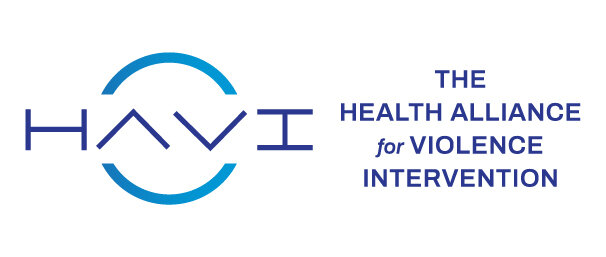During Grim Time, California Assembly Generates Hope Through Passage of Violence Prevention Bills
Legislation includes groundbreaking bill that covers violence prevention services under Medicaid
May 25, 2022— While many around the nation mourn the most recent mass killing that took the lives of 19 elementary school children and two adults in Uvalde, Texas, the California State Assembly today shifted the national narrative from stagnation to action by unanimously voting to pass Assembly Bill 1929, which would ensure community violence prevention services provided by a qualified violence prevention professional are covered under Medi-Cal, the state’s Medicaid program.
The Health Alliance for Violence Intervention (the HAVI)—a national organization that represents 50 hospital-based violence intervention programs and serves as a training and technical assistance provider for the White House Community Violence Intervention Collaborative— applauds the passage of this critical legislation by the California State Assembly.
"During critical times in history, we can make decisions that determine our legacy. Whether that legacy is one of failure, ineptitude, or hope is determined by the actions we take now,” said Kyle Fischer, MD, MPH, the HAVI’s policy director and a practicing emergency physician. “I am grateful for the staunch commitment and work of Assembly Members Gabriel and Gipson for their work to pass Assembly Bill 1929, Medi-Cal Violence Preventive Services, in the California Assembly. This legislation demonstrates that California has decided to move forward in building a community violence ecosystem that addresses violence at its roots,” said Fischer. “Yesterday's tragic massacre in Uvalde reinforces the critical urgency to address our nation's epidemic of violence. As an emergency physician, I have witnessed first-hand the trauma our communities are experiencing. As a father, I am determined to create a safer world for the next generation. AB-1929 smartly recognizes that violence is a public health crisis requiring public health solutions, and I strongly urge the California Senate to pass this legislation and for Governor Newsom to sign this bill into law immediately."
Assembly Bill 1929 is one of several bills under consideration by the California legislature that aim to reduce gun deaths in the state, where firearms took 3,449 lives in 2020, the most recent year for which Centers for Disease Control and Prevention (CDC) firearm mortality data are available. The HAVI played a critical role in the development and passage of AB 1929 and has been the driving force behind a growing movement to secure Medicaid reimbursement for the vital services provided by community violence prevention professionals.
“On behalf of the Advisory Board for the Health Alliance for Violence Intervention, I am thrilled to celebrate the passage of this legislation,” said Rochelle Dicker, MD, Chair of the HAVI’s advisory board and a trauma surgeon with Ronald Reagan UCLA Medical Center in Los Angeles who founded the San Francisco Wraparound Project, a hospital-based violence intervention program. “As a Trauma Surgeon, it is clear that addressing root causes of violence in our violently injured people is an essential part of holistic care. The backbone of this social care model is the credible messenger—the violence prevention professional. This legislation solidifies the place of the violence prevention professional as part of the fabric of trauma care in California.”
Youth ALIVE!, a HAVI member organization based in Oakland, Calif., played an instrumental role in advocating for the passage of Assembly Bill 1929. Anne Marks, the organization’s executive director, commented on the passage of this historic legislation: “Youth ALIVE! has spent over 30 years addressing violence as a health issue. It means so much to us to see our home state commit to supporting violence prevention, intervention, and healing programs through the public health system. When all you have is a hammer, everything looks like a nail. But now that we are offering medicine, violence looks like a curable disease.”
In 2015, the HAVI secured recognition by the National Uniform Claim Committee of a new type of health care provider for violence intervention—the violence prevention professional (VPP)—which created a pathway for VPPs to obtain reimbursement through traditional medical financing systems, including Medicaid. Last year, as a result of the HAVI’s advocacy, the Biden-Harris administration publicly acknowledged that Medicaid can and should reimburse these services. Shortly thereafter, Connecticut and Illinois became the first states in the nation to pass legislation to ensure that violently injured patients have access to certain violence prevention services as a Medicaid benefit and to financially reimburse violence prevention professionals who deliver those services.
###
